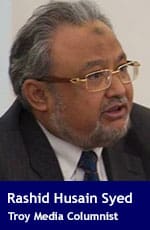The premiers acknowledge that Canada is facing a real struggle to overcome Trump’s tariff threat

For interview requests, click here
As Chrystia Freeland’s resignation rocked Ottawa last Monday, Canada’s provincial premiers were gathered in Toronto. Hosted by Ontario Premier Doug Ford, they were meeting to develop a joint response to the potential tariffs on Canadian goods, including energy, by the incoming U.S. administration under Donald Trump. The premiers agreed that such tariffs would be disastrous for the Canadian economy.
Canada and the U.S. are each other’s largest trade partners, with nearly $3.6 billion (US$2.7 billion) worth of goods and services crossing the border each day in 2023. This trade relationship is one of the largest bilateral partnerships in the world, with annual two-way trade nearing $1 trillion. Canada supplies 34 critical minerals and metals to the U.S. Canadian crude oil and electricity account for 60 per cent and 85 per cent of U.S. imports. Furthermore, Canada is the leading supplier of steel, aluminum, and uranium to the U.S.
 Screenshot from Donald Trump’s Truth Social account. |
| Recommended |
| Canada should build a tariff-proof economy
|
| Trudeau’s leadership questioned as trade tensions escalate
|
| Trump’s tariff threats are more bark than bite
|
At the Monday meeting, the premiers were divided on how to counter the Trump administration’s potential tariffs. Ontario Premier Doug Ford suggested suspending electricity exports to American customers, stating, “It would turn off the lights to a million-and-a-half Americans.” However, not all premiers supported matching export tariffs on Canadian goods, including oil and gas, to the U.S.
The rift among the premiers became apparent when Danielle Smith, the premier of Alberta, and Andrew Fury, the premier of Newfoundland and Labrador, discussed the issue at the Empire Club in Toronto. The timing of the Empire Club debate on the day following Freeland’s resignation gained greater significance in light of the tariff discussions.
Danielle Smith argued that more needed to be done to address the concerns of the incoming U.S. administration. She suggested that presenting a security plan acceptable to the U.S. could help maintain good relations. Smith noted that Alberta is spending $29 million on enhancing border security to address U.S. concerns about securing Canadian borders and preventing the flow of drugs and illegal immigration. She also acknowledged that the fentanyl issue is a concern for Alberta and the rest of the country.
Smith added that Alberta is uniquely positioned to help achieve U.S. energy security, which could serve as a bargaining chip with Washington. She criticized the Trudeau government’s energy policy, emphasizing that while reducing greenhouse emissions is important, Alberta has made significant efforts to address the issue. She stressed that meeting the net-zero targets within the specified timeframe would require cutting output by one million barrels per day (bpd) by 2030 and two million bpd by 2035. Smith emphasized that caps are not a viable solution and that Alberta would not accept such measures. She stated that Canadian prosperity relies on oil.
Smith also said that Canada is a better, more reliable, and more responsible energy trading partner for the U.S. and the world compared to dictatorial regimes with worse environmental and humanitarian records.
Meanwhile, Andrew Fury emphasized provincial leadership’s crucial role in managing oil and gas issues. He highlighted that the Atlantic Accord, an agreement with the federal government, guarantees joint management in both spirit and writing. This means that any decisions regarding emission caps require agreement between the energy minister and the premier of Newfoundland and Labrador. Fury pointed out that this agreement has not been honoured and said he will fight for the hard-working men and women in Newfoundland and Labrador’s energy industry.
Fury also noted that his province is making efforts to produce more energy and that the world needs more Canadian energy. He argued that Canada needed to negotiate from a position of strength and emphasized the importance of presenting a united front during negotiations with the incoming Trump administration.
The premiers recognized the reality of the tariff challenge and admitted that overcoming it will be difficult. They emphasized that maintaining a unified stance during negotiations is a key priority for the provincial leaders.
Toronto-based Rashid Husain Syed is a highly regarded analyst specializing in energy and politics, particularly in the Middle East. In addition to his contributions to local and international newspapers, Rashid frequently lends his expertise as a speaker at global conferences. Organizations such as the Department of Energy in Washington and the International Energy Agency in Paris have sought his insights on global energy matters.
Explore more on Canadian economy, Donald Trump, Trade, Canada-U.S. relations
The views, opinions, and positions expressed by our columnists and contributors are solely their own and do not necessarily reflect those of our publication.
© Troy Media Troy Media is committed to empowering Canadian community news outlets by providing independent, insightful analysis and commentary. Our mission is to support local media in building an informed and engaged public by delivering reliable content that strengthens community connections, enriches national conversations, and helps Canadians learn from and understand each other better.
